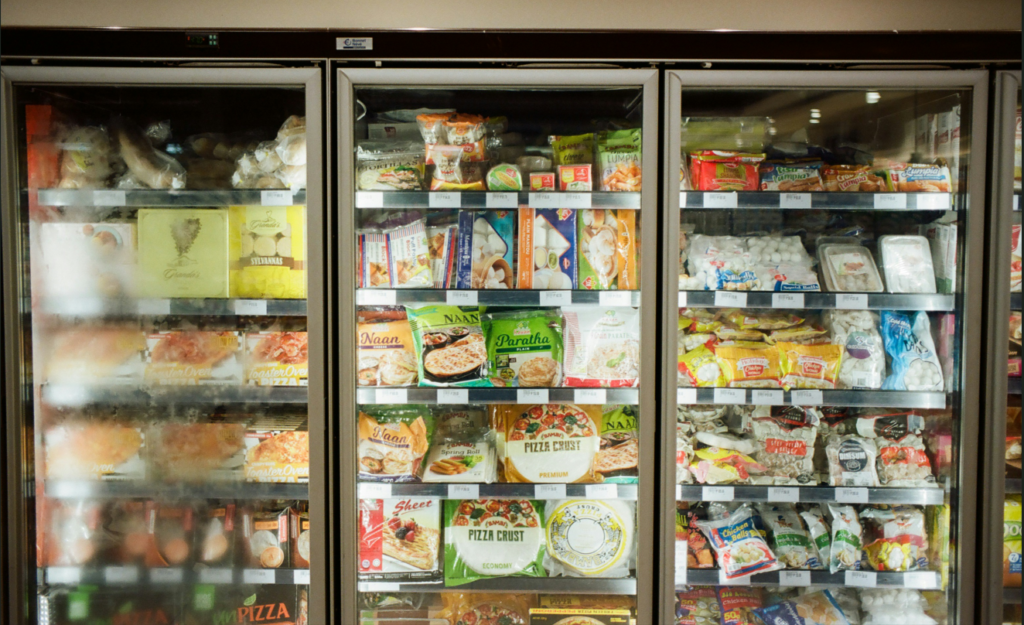
If you’re a small business owner in the food or supermarket industry, choosing the right commercial refrigeration can be as daunting as it is essential. There are different types of refrigeration systems and correct maintenance methods to keep them in optimal performance. To give you a rundown of the essentials, here’s a quick guide on commercial refrigerators for your budding business. Let’s start!
The Basics of Keeping Goods Cool
At the heart of every food or supermarket business is the ability to preserve food properly, and this is exactly where refrigeration comes into play. The most common types for small businesses include reach-in coolers, walk-in coolers, and display refrigerators. Each has its place, from the shop floor to the back of the house.
Understanding key refrigerator parts, such as compressors, evaporators, and condensers, is crucial to maintaining the function of your cooling systems. The compressor, for example, is like the heart of the refrigerator, as it pumps refrigerant through the system, keeping air temperatures low.
Types of Refrigerating Systems
The type of refrigerator you need depends on your specific business operations. Reach-in refrigerators, for instance, are ideal for small spaces as they provide easy access to frequently used items. Meanwhile, walk-ins offer significantly more storage but require adequate space for installation. With this in mind, it’s paramount to take into account the size of your premises, the volume of food you handle, and the layout of your kitchen before buying a unit.
Sizes of Refrigerators Based on Your Needs
Refrigeration is not a one-size-fits-all game. The last thing you want is to undershoot or overshoot the mark when it comes to capacity. An undersized refrigeration unit can lead to overloading and spoilage, while an oversized one may be less energy-efficient and take up valuable space. Measure your storage needs by taking stock of your inventory flow—how much stock comes in and goes out of your restaurant or store during a typical day?
Temperature Control and Monitoring
Making sure that your refrigeration equipment maintains the right temperature is vital for food safety. Modern units come with digital thermometers and alarms to alert you to any deviations from the set temperature range. In addition, exercise the use of temperature logs and regularly calibrate your equipment to guarantee it’s working as it should.
The Sustainability Angle
In today’s eco-conscious landscape, energy-efficient refrigeration is not just a perk—it’s an essential selling point. Energy Star-rated appliances can significantly reduce your utility bills while minimizing your carbon footprint. Simple practices, such as keeping the seals on your doors airtight and positioning refrigerators in a cool area away from heat sources, can make a big difference in maintaining efficiency.
Maintenance Tips to Keep Your Coolers Running
Preventative maintenance is the key to avoiding costly breakdowns. Regularly clean condenser coils, ensure proper drainage, and keep a close eye on the condition of door gaskets. If your refrigeration unit starts to show signs of wear and tear, such as loud or unusual noises, don’t hesitate to call in a professional to diagnose and fix the issue.
The Importance of Using OEM Parts
Sticking with OEM parts will help maintain the efficiency of your system and preserve your manufacturer’s warranty. Therefore, it’s also beneficial to establish a relationship with a certified supplier of OEM parts. This way, you have access to components like Hussmann case parts to keep your refrigerators running as they should. If you’re uncertain about the right parts to use, consult your manufacturer or authorized dealer for guidance.
Team Training for Optimal Use
Your refrigeration is only as good as the people using it. Make sure your team is well-trained in the proper use, storage, and cleaning of refrigeration units. This includes understanding the best practices for organizing items, cleaning spills promptly, and recognizing when storage practices are putting food safety at risk.
Overall, the selection, use, and maintenance of your commercial refrigeration system are vital for the success of your small business. So, make sure to be proactive in terms of maintenance and training to prolong your investment. Do not also hesitate to seek professional advice for efficient solutions. Remember, if you prioritize the performance of your refrigeration units, you safeguard the quality of your products and the heart of your operation!

